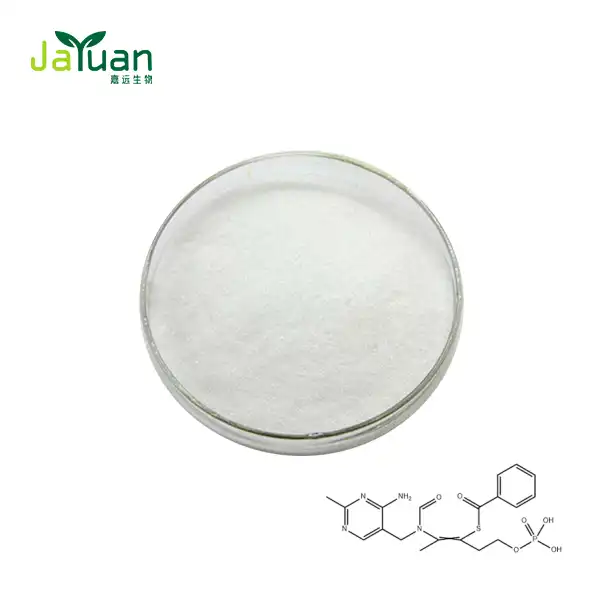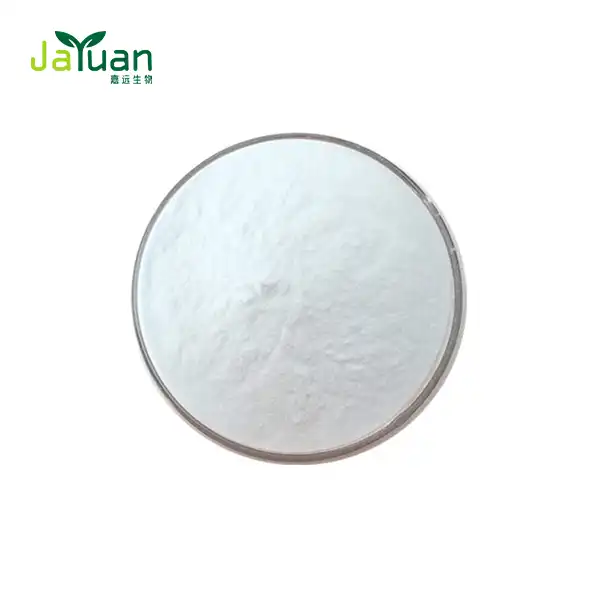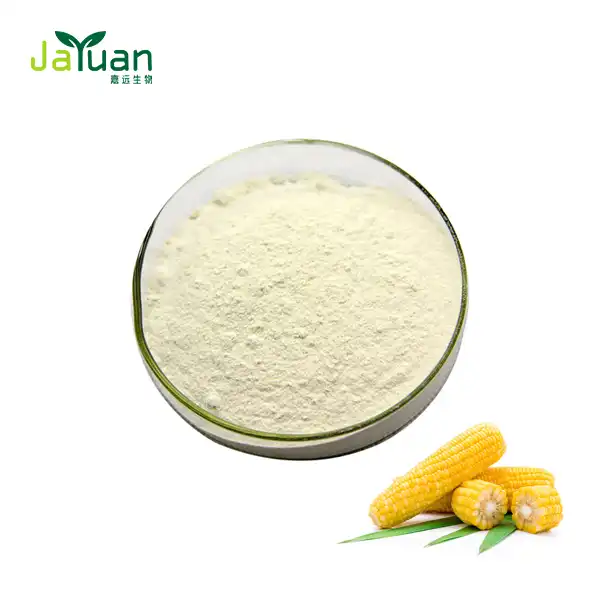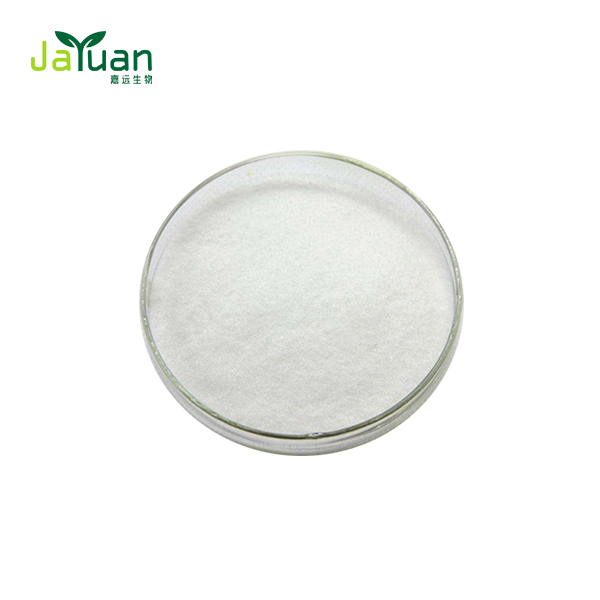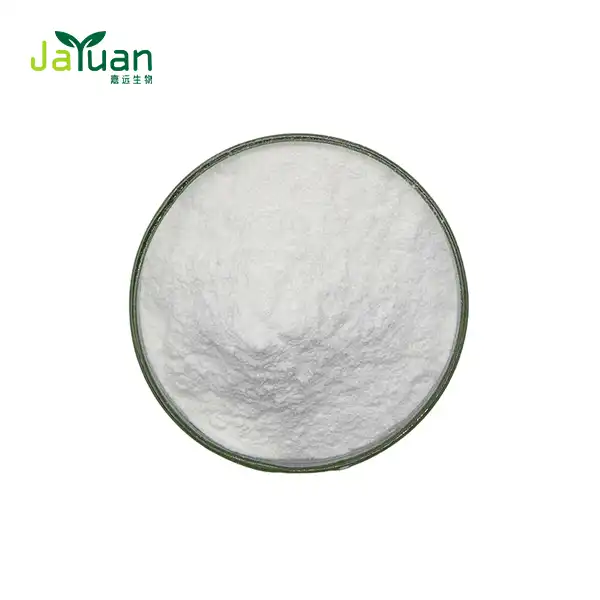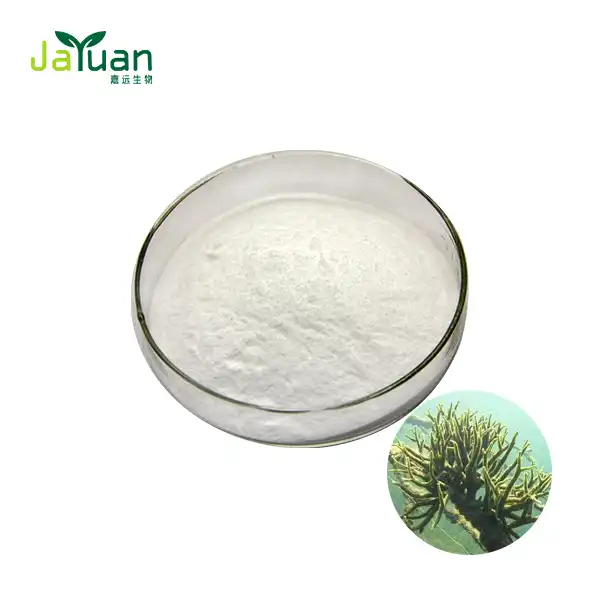Polygonatum Officinale Rhizome Root Extract: Traditional Uses in Chinese Medicine
Polygonatum officinale, commonly known as Solomon's Seal, has been a cornerstone of Traditional Chinese Medicine (TCM) for centuries. Its rhizome root extract, renowned for its multifaceted health benefits, continues to captivate both practitioners and researchers alike. This article delves into the traditional uses and modern applications of Polygonatum officinale rhizome root extract, exploring its potential to enhance our well-being and vitality.
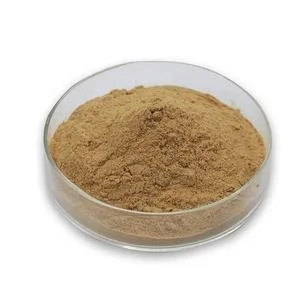
Health Benefits of Polygonatum Officinale Rhizome Root
The rhizome root of Polygonatum officinale is a treasure trove of bioactive compounds, each contributing to its impressive array of health benefits. Let's explore some of the key advantages associated with this remarkable botanical extract:
Polygonatum officinale rhizome root extract is rich in polysaccharides, flavonoids, and steroidal saponins, which are believed to be responsible for many of its therapeutic properties. These compounds work synergistically to promote overall health and well-being.
One of the most notable benefits of Polygonatum officinale is its potential to support cardiovascular health. Research suggests that the extract may help regulate blood pressure and improve circulation, potentially reducing the risk of heart disease and stroke.
The extract has also demonstrated promising anti-inflammatory properties. This makes it a valuable ally in managing various inflammatory conditions, from arthritis to digestive disorders. By modulating the body's inflammatory response, Polygonatum officinale may help alleviate pain and discomfort associated with chronic inflammation.
Another significant benefit lies in its potential to regulate blood sugar levels. Some studies have indicated that Polygonatum officinale rhizome root extract powder may help improve insulin sensitivity and glucose metabolism, making it a promising natural aid for those managing diabetes or prediabetes.
The extract's antioxidant properties are also worth noting. By neutralizing harmful free radicals in the body, it may help protect cells from oxidative stress and damage, potentially slowing the aging process and reducing the risk of various chronic diseases.
Polygonatum officinale has long been used in TCM to support lung health. It's believed to have expectorant properties, helping to clear mucus and soothe respiratory passages. This makes it a valuable herb for those dealing with respiratory issues such as asthma or chronic bronchitis.
Lastly, the extract has been traditionally used to support bone and joint health. Its potential to improve bone density and reduce joint inflammation makes it a promising natural supplement for those concerned about osteoporosis or arthritis.
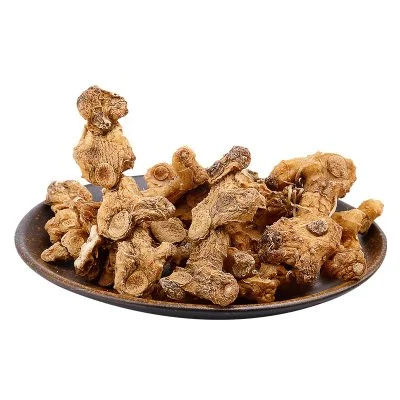
How Polygonatum Officinale Enhances Immunity and Vitality
One of the most intriguing aspects of Polygonatum officinale is its potential to boost immunity and enhance overall vitality. This ancient herb has been used for centuries in TCM to strengthen the body's natural defenses and promote longevity.
The immune-boosting properties of Polygonatum officinale rhizome root extract are believed to stem from its rich content of polysaccharides. These complex carbohydrates have been shown to stimulate the production and activity of immune cells, helping the body fend off infections and diseases more effectively.
Moreover, the extract's adaptogenic properties make it particularly valuable in combating stress and fatigue. Adaptogens are substances that help the body adapt to physical, chemical, and biological stressors. By modulating the body's stress response, Polygonatum officinale may help improve resilience, reduce fatigue, and enhance overall energy levels.
The vitality-enhancing effects of Polygonatum officinale extend beyond its immune-boosting properties. The herb is known in TCM as a "qi tonic," meaning it helps to nourish and strengthen the body's vital energy. This can translate to improved stamina, better mental clarity, and a greater sense of overall well-being.
Research has also suggested that Polygonatum officinale may have neuroprotective properties. By supporting brain health and cognitive function, it could potentially help maintain mental acuity and reduce the risk of age-related cognitive decline.
Another fascinating aspect of Polygonatum officinale is its potential to support hormonal balance. In TCM, it's often used to address issues related to reproductive health and hormonal imbalances. While more research is needed in this area, preliminary studies have shown promising results in terms of its ability to modulate hormone levels and support reproductive health.
The extract's ability to support liver function is another key factor in its vitality-enhancing properties. The liver plays a crucial role in detoxification and metabolism, and by supporting this vital organ, Polygonatum officinale may help improve overall health and energy levels.

Traditional Chinese Medicine: The Role of Polygonatum Rhizome
In the rich tapestry of Traditional Chinese Medicine, Polygonatum rhizome, known as "Huang Jing" in Chinese, holds a place of high esteem. Its use dates back thousands of years, with mentions in ancient texts such as the "Shennong Ben Cao Jing" (Divine Farmer's Materia Medica), one of the oldest Chinese pharmacopeias.
According to TCM principles, Polygonatum rhizome is classified as a "Yin tonic" herb. In TCM theory, Yin represents the cooling, nourishing, and moistening aspects of the body. By tonifying Yin, Polygonatum is believed to help balance the body's energies and promote overall health and longevity.
Traditionally, Polygonatum rhizome has been used to address a wide range of health concerns. It's particularly valued for its ability to nourish the Lung and Kidney meridians. In TCM, the Lungs are associated with the respiratory system and immunity, while the Kidneys are linked to vitality, reproductive health, and longevity.
One of the primary traditional uses of Polygonatum rhizome is to moisten the Lungs and alleviate dry cough. It's often prescribed in formulas for chronic respiratory conditions, particularly those characterized by dryness and irritation. This aligns with modern research highlighting its potential benefits for respiratory health.
In TCM, Polygonatum rhizome is also believed to nourish the Kidney Yin. This makes it a valuable herb for addressing issues related to aging, such as weakness, fatigue, and decreased libido. It's often used in formulas aimed at promoting longevity and maintaining youthful vigor.
The herb's ability to nourish Yin also makes it useful in TCM for treating "internal heat" conditions. These can manifest as symptoms such as night sweats, hot flashes, and excessive thirst. By cooling and moistening the body, Polygonatum rhizome helps to restore balance and alleviate these symptoms.
Another traditional use of Polygonatum rhizome is to tonify the Spleen and Stomach. In TCM, these organs are associated with digestion and the distribution of nutrients throughout the body. By strengthening these systems, the herb is believed to improve appetite, digestion, and overall nutrient absorption.
Polygonatum rhizome is often combined with other herbs in TCM formulas to enhance its effects or address specific health concerns. For example, it might be paired with Astragalus root to boost immunity, or with Rehmannia root to nourish Yin and support kidney function.
It's important to note that while traditional uses of Polygonatum rhizome are based on centuries of empirical evidence, many of these applications are still being studied from a modern scientific perspective. As research continues, we may gain a deeper understanding of how this ancient herb can be best utilized in contemporary healthcare practices.
The versatility and potency of Polygonatum officinale rhizome root extract make it a fascinating subject for both traditional practitioners and modern researchers. As we continue to bridge the gap between ancient wisdom and contemporary science, herbs like Polygonatum officinale offer exciting possibilities for holistic health and wellness.
At Xi'an Jiayuan Bio-Tech, we're committed to harnessing the power of nature to promote health and well-being. Our high-quality Polygonatum officinale rhizome root extract powder is produced using advanced techniques to ensure maximum potency and purity. Whether you're a practitioner looking to incorporate this powerful herb into your treatments or a manufacturer seeking premium ingredients for your products, we're here to meet your needs.
Are you interested in learning more about Polygonatum officinale or exploring our range of natural plant extracts? We'd love to hear from you. Reach out to our team at sales@jayuanbio.com, sales1@jayuanbio.com for more information or to discuss how we can support your health and wellness goals.
References
- Zhang, L., et al. (2019). "Polygonatum sibiricum: A review of its traditional uses, phytochemistry, pharmacology, clinical applications, and toxicology." Journal of Ethnopharmacology, 241, 111922.
- Wang, Y., et al. (2018). "Polygonatum sibiricum polysaccharide potentially attenuates diabetic retinal injury in diabetic rats." Journal of Diabetes Research, 2018, 4708508.
- Liu, X., et al. (2017). "Polysaccharides from Polygonatum sibiricum attenuate D-galactose-induced aging in rats by activating the SIRT1/FOXO1 signaling pathway." Oxidative Medicine and Cellular Longevity, 2017, 3794678.
- Zhao, P., et al. (2020). "Polygonatum sibiricum polysaccharide inhibits osteoporosis by promoting osteoblast formation and blocking osteoclastogenesis through Wnt/β-catenin signalling pathway." Scientific Reports, 10(1), 2157.
- Chen, H., et al. (2016). "Antioxidant activities of polysaccharides from different species of Polygonatum." International Journal of Biological Macromolecules, 86, 177-182.
- Li, Y., et al. (2021). "Traditional uses, phytochemistry, pharmacology and toxicology of the genus Polygonatum: A review." Journal of Ethnopharmacology, 267, 113460.

